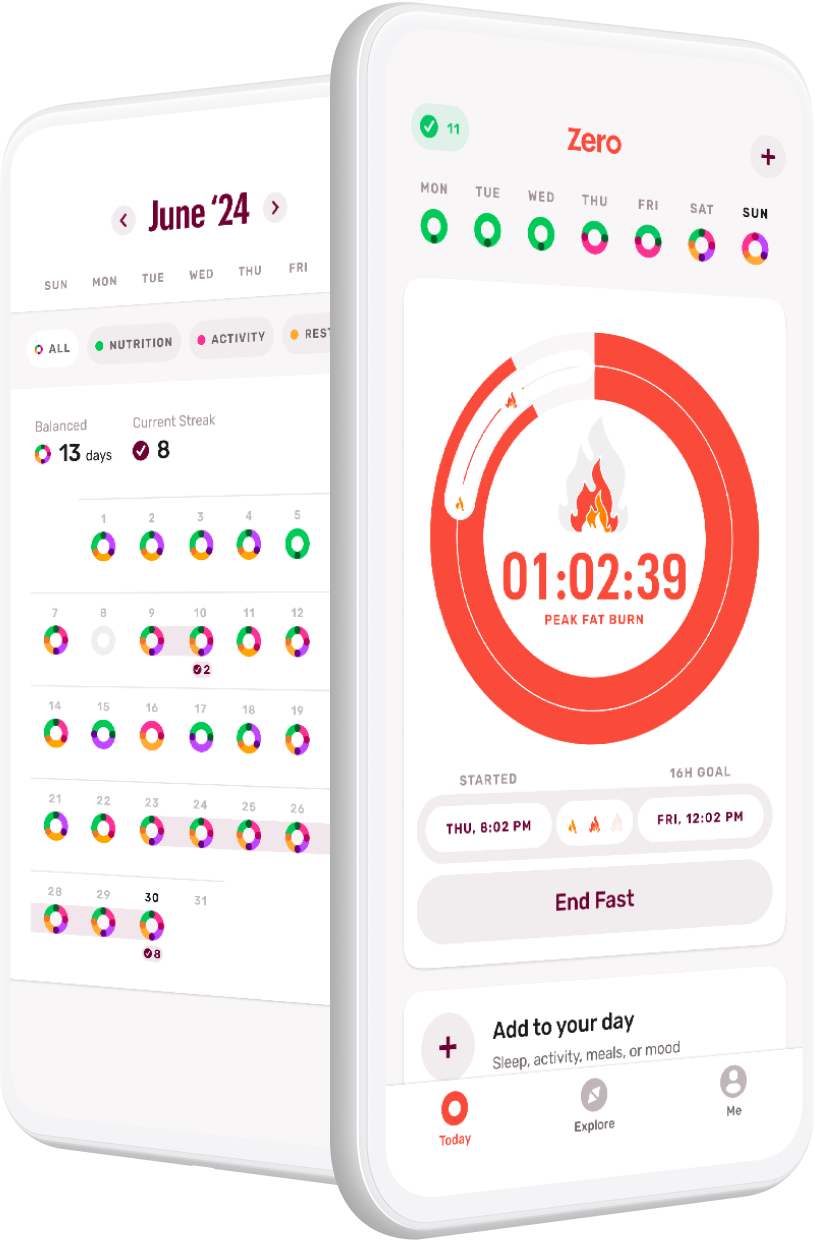Written and medically reviewed by Rich LaFountain, PhD
Contrary to what many diets, supplements, and magazines would have you believe, “perfect health” is impossible to achieve or maintain, which makes its pursuit both stressful and often miserable. Striving for perfection robs you of gratitude for what you have already achieved and downplays the crucial role of slow, incremental change — the only way to make positive, lasting improvements in your health. Therefore, let’s start rethinking your health in terms of progress, rather than perfection, to set you up for a lifetime of feeling and living better.
What Does “Strive for Progress, Not Perfection” Mean?
Progress involves movement toward a goal. No matter how big, small, fast, or slow, any advancement is a form of progress. Perfection, on the other hand, is a goalpost often sought with urgency, under a deadline. Moreover, the goalpost tends to move because perfection is context dependent. If you’re trying to run a marathon, your “perfect body” is lean with a powerful aerobic engine. However, if you change your athletic ambitions to weightlifting, leanness and a high aerobic capacity will do you little good; you need a body that is much larger and much stronger.
But how lean or how large is “perfect”? That’s the other problem with perfection when it comes to health: It’s often vague and subjective. Leaner is not always better — if you lose too much body fat, you compromise your hormonal balance and risk losing reproductive function and even fracturing bones. Likewise, larger is not always better, because eventually you can compromise joint mobility and overstress other body systems. Ultimately, there is no perfect body composition; it’s always circumstantial, and circumstances change.
Why “Progress, Not Perfection” Should Be Your Default
Because “perfect health” doesn’t really exist, pursuing it can — understandably — feel impossible. The margin for error is so miniscule, it’s easy to fall into the mindset of “why even bother?” That’s why a progress-oriented mindset is superior if your goal is to live better, longer.
Progress is driven by clarity of purpose and an honest commitment to improvement. When you focus on progress, you’re freed from the rigid confines of perfection, thereby opening up to learn and optimize as you make efforts to improve. When you’re interested in building lasting health, progress is what enables you to celebrate the moment you’re currently in while also looking forward to the possibilities you’ve not yet experienced. Perfection can’t do any of that.
How to Measure Your Health Progress
To achieve a progress-focused mindset, use the following five approaches to pursuing health and longevity.
#1. Know Your Why
Let’s say you want to improve your health by losing weight. (And if you do, you’re in good company: More than half of Americans have the same goal.) Before you start down that path, you need to ask yourself a question — and it’s not “How much weight?”
The “how much” question funnels back to a perfectionist mindset, because it sets a goalpost in the sand, but then what happens when you reach it? Does it invariably move? Or let’s say you lose some weight but plateau about 5 pounds above your goal — does that mean you’ve failed?
Instead, the question to ask is why you want to lose weight. Step back and look at the bigger picture of your health aspirations. Will losing weight improve other markers of long-term health, like insulin sensitivity? Will it enable you to more easily do other activities that you love, like hiking or playing with your dog? Having a concrete sense of your “why” will help to keep you motivated and on track when inevitable temptations and setbacks creep in. Moreover, research indicates that by taking a “bigger picture” view, you develop a more positive outlook and find greater meaning in the journey. In other words, you’ll more naturally celebrate progress on your health journey (which makes it fun!) rather than suffering through the tumultuous pursuit of perfection.
#2. Prioritize Longevity-Based Goals
When you pursue perfection, you tend to narrow your focus on shorter-term goals in a way that often requires sacrificing important restorative habits and relationships that are vital to balanced health — which ultimately makes the pursuit of perfection unsustainable.
Take elite competitors in sports like bodybuilding or boxing: These athletes only attempt to achieve their “perfect body” for a small portion of the year and then revert back to their “training” weight and physique. In fact, because of their focus on perfectly timed “perfection,” they may make a habit of losing and regaining the same weight over and over again. Assuming you’re not a competitive athlete or bodybuilder, this weight cycling will not serve your health goals.
Let’s go back to back to why you want to lose weight. If your goal is to lose 20 pounds and your “why” is “to look good at my upcoming class reunion,” you’ve just set a short-term perfection goal. You have a “why” behind your goal, but it has nothing to do with the length of your life or quality of your health. Alternatively, if your goal is to lose 20 pounds because that will get you out of the overweight BMI category and thereby reduce your risk of heart disease, which will increase your chances of being around (and mobile!) for your grandkids, that’s a longevity-focused goal that you’ll be more likely to sustain long term.
#3. Follow an “80/20” Approach
The 80/20 approach is a strategy that quite literally plans for imperfection, thereby making a healthy sustainable lifestyle achievable. It is most commonly used to describe overall eating patterns, with 80% of your diet consisting of minimally processed whole foods and the other 20% being less-nutritious comfort foods or desserts, or 80% of your time adhering to a specific fasting schedule and 20% being more flexible. On a weekly schedule, this math works out to relaxing your otherwise-healthy eating habits for a day and a half each week.
Of course, the 80/20 approach does not need to be limited to diet. You might apply the same strategy to any or all Four Pillars of Health in order to support balanced health. Distilled to its essence, 80/20 means you should be prioritizing choices that promote progress towards health and longevity at least four times as often as you allow for discretionary treats.
#4. Don’t Let Setbacks Faze You
Not all progress is linear. Chances are that, at some point, you’ve experienced a health and fitness plateau, or even a setback. In the course of a lifetime, these are normal. Plateaus and setbacks happen, and they’re bound to feel frustrating and/or disappointing, but they only feel devastating if you’re oriented towards perfection. Perfection tends to be brittle and to crumble when pressure is applied, whereas progress is more pliable and resilient. In fact, research has found that if you’ve experienced health setbacks and recovered, you are not only more resilient, you are also much more likely to maintain better health across your entire lifetime than those who have not been exposed to adversity. This is why progress needs to be the goal: When setbacks happen, you can look forward to resuming your health and longevity journey rather than falling to pieces because perfection is no longer in reach.
#5. Create a Routine You Love
Activities you hate are inherently more difficult to maintain than activities you love. Therefore, don’t aspire to create a “perfect” health routine; health habits will never be sustainable if you’re forcing yourself to check them off every day. Instead, select health and longevity habits that you love and that love you back by improving your quality and quantity of time on Earth.
And choose a lot of them, because you’ll need to be flexible! Inflexibility is often a signal that you’re trying to adhere to a “perfect” routine rather than one that helps you make progress on your health journey. The perfect routine is only perfect on that day when the stars align, the sun is shining, and you’re feeling like your best self; the next day might be an entirely different story. That’s why you need to build an arsenal of habits and routines that fit your preferences and contribute to making progress on your health and longevity. A routine with progress as its aim can be tweaked and refined forever — that’s part of the fun.
Conclusion
No one has ever or will ever achieve perfect health. Progress is therefore a far superior aspiration if you want to build a healthy lifestyle that withstands the test of time. By measuring your health in progress, not perfection, you can have fun on a health journey that’s filled with gratitude and discoveries along the way.
- Debunking 3 Myths Around Fasting and Thyroid Health - April 15, 2024
- Breaking Down Fast Breakers: How to Tell If Something Will Break Your Fast - March 4, 2024
- GLP-1s and Weight-Loss Medications vs. Lifestyle Interventions: What’s Right for You - February 5, 2024

